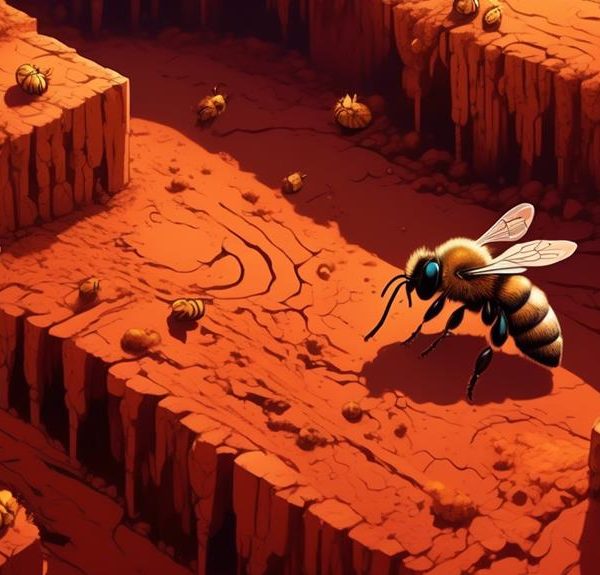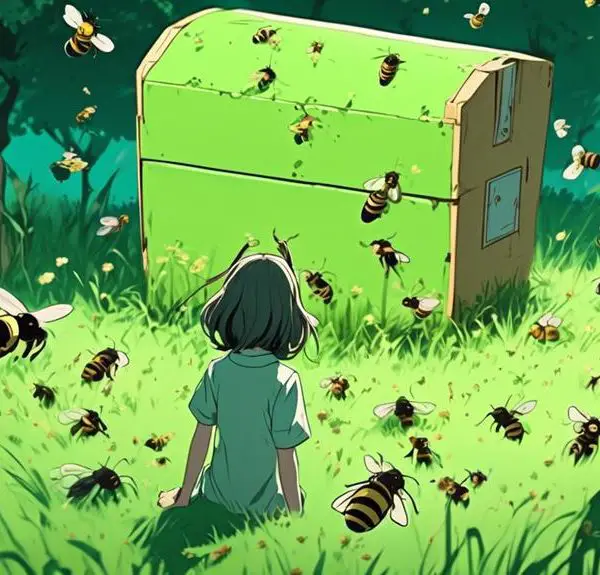Dive into the fascinating world of mason bee larvae trade, its reality, importance, and the key considerations before you make a purchase.
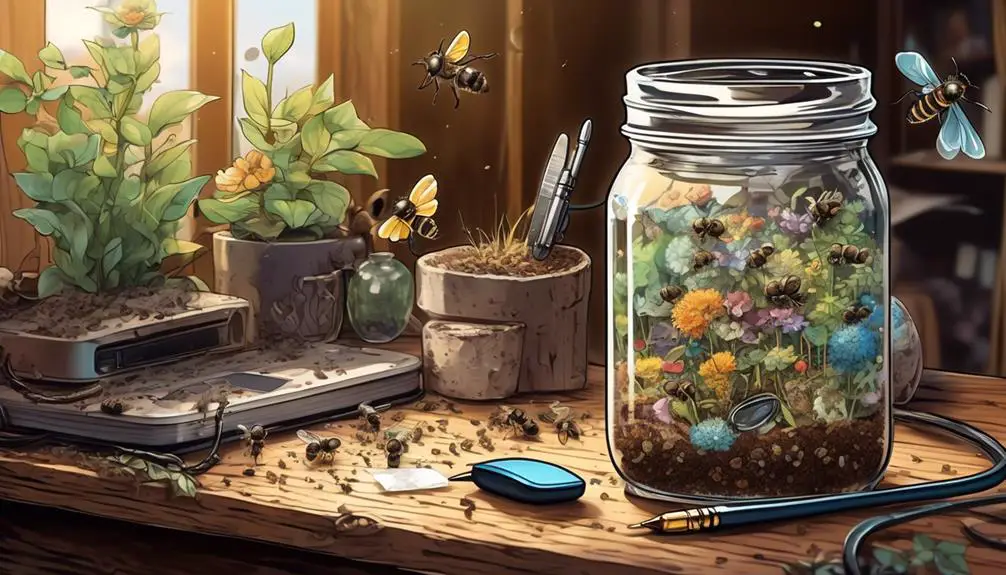
Can You Buy Mason Bee Larvae?
Is it really possible to buy mason bee larvae? You've probably heard about their importance in pollination and biodiversity, but perhaps you're questioning the reality of acquiring these little insects in their larval stage.
While it may seem unusual, the world of insect trade is vast and diverse. But before you start imagining yourself as a mason bee keeper, there are some critical points to consider.
So, stick around; we've got a lot to discuss.
Key Takeaways
- Mason bees are superior pollinators, capable of pollinating up to 100 times more flowers than honey bees in a day.
- Mason bees are essential for the reproduction of many plants and crops and their decline can lead to reduced crop yields and loss of biodiversity.
- Conservation methods for mason bees include creating bee habitats, reducing pesticide use, and increasing public awareness.
- When purchasing mason bee larvae, it is important to buy from reputable suppliers with a commitment to sustainability and healthy bees.
Understanding Mason Bees
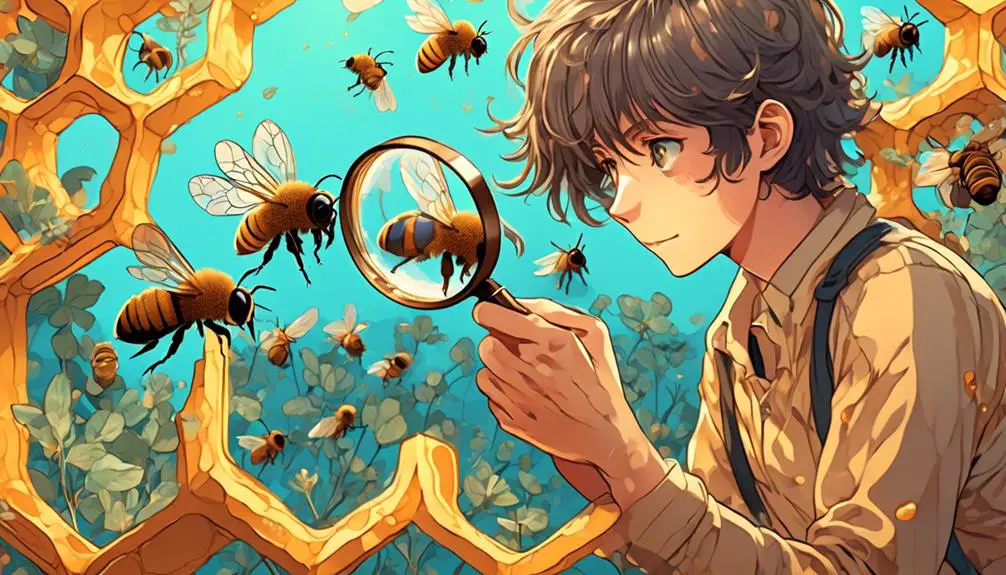
To fully appreciate the process of buying mason bee larvae, you'll first need to understand the unique biology and behavior of these fascinating insects. Unlike honey bees, mason bees are solitary, meaning each female is fertile and constructs her own nest. They're named 'mason' due to their habit of using mud or other malleable materials to build their nests, usually in small cavities such as hollow stems or man-made bee houses.
Mason bees are also superior pollinators, capable of pollinating up to 100 times more flowers than honey bees in a single day. They're non-aggressive and rarely sting, making them an ideal choice for urban and suburban environments.
It's their distinctive life cycle, however, that sets them apart. After mating in spring, the female lays her eggs in the nest, along with a food supply of pollen and nectar, and seals it with mud.
Importance of Mason Bee Conservation
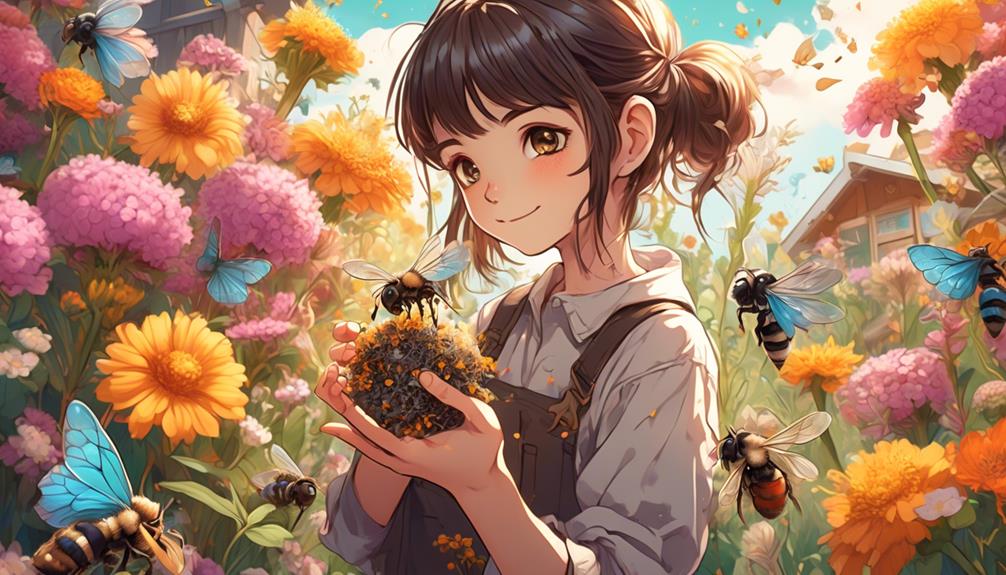
Understanding the role that mason bees play in our ecosystem, you'll quickly recognize the vital importance of their conservation. These buzzing creatures are essential pollinators, crucial for the reproduction of many flowering plants and crops. However, they're under threat due to habitat loss, pesticides, and climate change.
Consider the table below that outlines the consequences of mason bee decline, their conservation benefits, and potential conservation methods:
Consequences of Decline | Conservation Benefits | Conservation Methods |
|---|---|---|
Reduced crop yields | Enhanced pollination | Creating bee habitats |
Loss of biodiversity | Biodiversity preservation | Reducing pesticide use |
Ecosystem imbalance | Ecosystem balance maintenance | Increasing public awareness |
Economic impact | Economic sustainability | Legislation & protective measures |
Conserving mason bees isn't just about saving a species; it's about preserving our food sources, maintaining biodiversity, and sustaining economies. When you support mason bee conservation, you're investing in a healthier, more balanced ecosystem. Therefore, whether you're purchasing mason bee larvae to start your own colony or supporting conservation efforts, your actions contribute to the wellbeing of these crucial pollinators and, by extension, our planet.
Purchasing Mason Bee Larvae
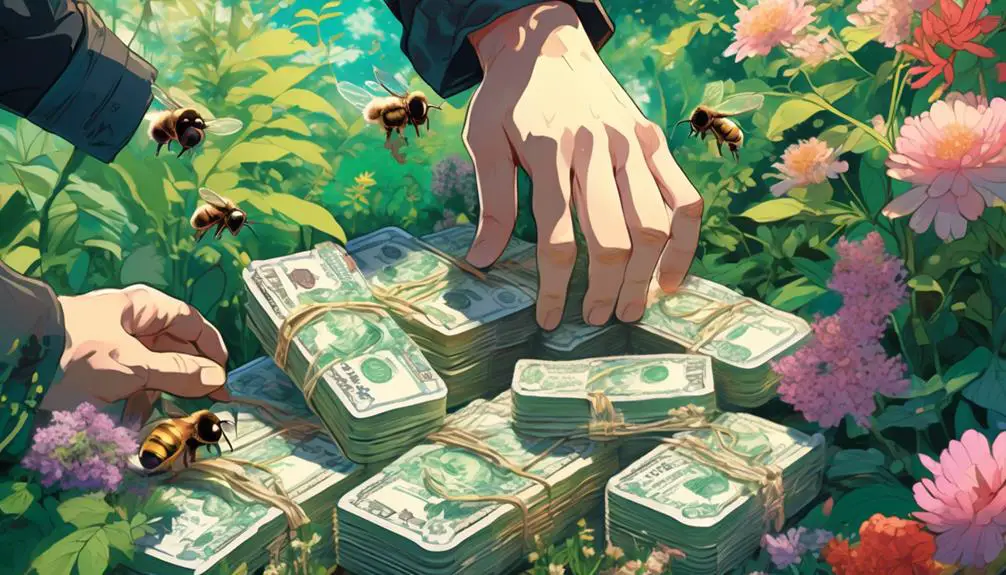
Having grasped the significance of mason bee conservation, you may be intrigued to contribute personally by buying mason bee larvae and kick-starting your own colony. It's entirely possible and quite straightforward.
To begin, you'll need to find a reputable supplier. Many online retailers offer mason bee larvae for sale. Look for suppliers that have positive reviews and a clear commitment to sustainable practices. The larvae should be shipped in a dormant state, usually within a protective cocoon, and will require a cool, stable environment until spring arrives.
Next, consider the timing. Buy your larvae when you're ready to house them, ideally in late winter or early spring. That's when they'll naturally emerge from their cocoons, ready to start pollinating.
You should also prepare a suitable habitat for your new colony. Mason bees aren't hive-dwellers like honeybees. They prefer solitary nests in hollow reeds or tunnels, so you'll need to provide a 'bee house' with these features.
Recommended Mason Bee Suppliers
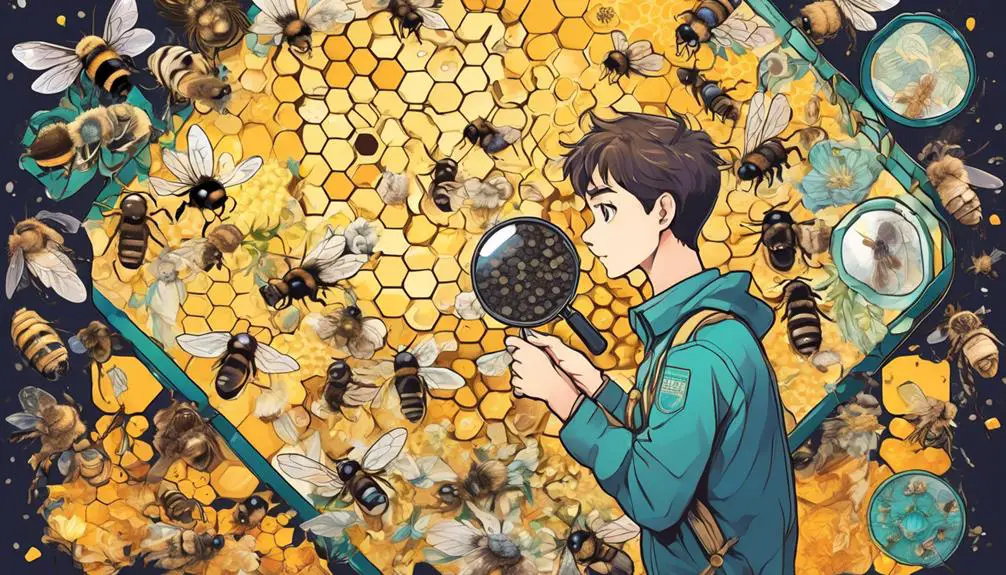
Often, finding a trustworthy mason bee supplier can be the trickiest part of starting your own colony. You're looking for quality, reliability, and a clear commitment to sustainable practices. Here are a few suppliers I'd recommend.
Crown Bees, located in Washington state, is an excellent option. They've earned a sterling reputation for their sustainable practices and high-quality bees. They offer a variety of options, including larvae and cocoons, and provide comprehensive support for novice beekeepers.
Another noteworthy supplier is MasonBeesForSale.com. They're located in Utah and are dedicated to providing quality mason bees. They've been in operation since 2009 and offer a range of beekeeping needs, from larvae to housing.
Lastly, check out Knox Cellars. They're a smaller operation based in Washington state, but their commitment to quality is unquestionable. They offer detailed care instructions with each purchase, which can be invaluable for beginners.
Before purchasing, it's always best to research the supplier thoroughly. Ensure they're committed to sustainable practices and provide healthy bees. Remember, the success of your colony hinges on the quality of its founding members.
Considerations Before Buying
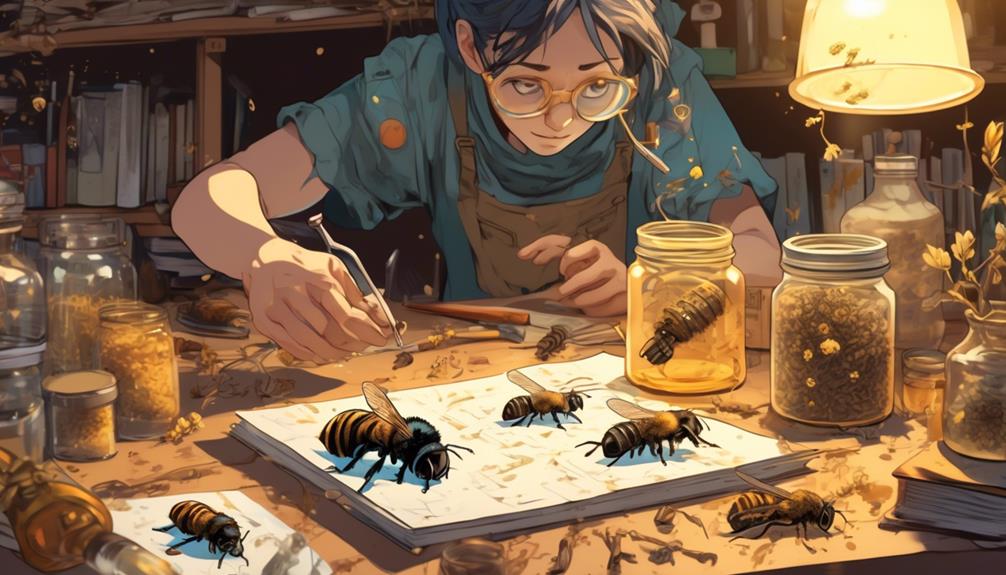
While selecting a reputable mason bee supplier is crucial, there are several other factors you'll need to consider before making your purchase.
First, you'll need to think about the right time to buy. Mason bee larvae typically enter a dormant phase in late fall, remaining inactive until early spring. Buying during this period ensures that you're getting viable, healthy larvae.
Next, consider the species. Different species of mason bees are adapted to different climates and environments. For instance, blue orchard bees are ideal for warmer regions, while horn-faced bees fare better in cooler climates. Make sure you're choosing the right species for your specific location.
Lastly, consider the number of larvae. Mason bees are solitary, meaning each female mates and nests independently. A single female can pollinate an entire garden. However, to ensure sufficient pollination, it's recommended to have at least two females per fruit tree.
It's also important to remember that mason bees require specific nesting conditions. They need access to a suitable nesting site, like a bee house with appropriate-sized holes, and a nearby source of mud for sealing their nests.
Conclusion
You've got the scoop on mason bees and their vital role in conservation. These bees play a crucial role in pollination, making them an essential part of our ecosystem.
If you're interested in buying mason bee larvae, it's important to choose your supplier wisely. Not all suppliers are created equal, so take the time to research and find a reputable source.
Before making a purchase, consider the health of the bees and their origin. It's important to ensure that the bees are healthy and free from diseases or pests. Additionally, knowing the origin of the bees can help prevent the introduction of invasive species into your area.
Timing is also crucial when buying mason bee larvae. Make sure to purchase them during the appropriate season when they are active and ready to be released into your garden.
By investing in mason bee larvae, you're not only bolstering your garden but also contributing to the preservation of our precious ecosystem. These bees are excellent pollinators and can greatly benefit the overall health of your garden.
So, happy beekeeping and enjoy the rewards of having these incredible creatures buzzing around your yard!

